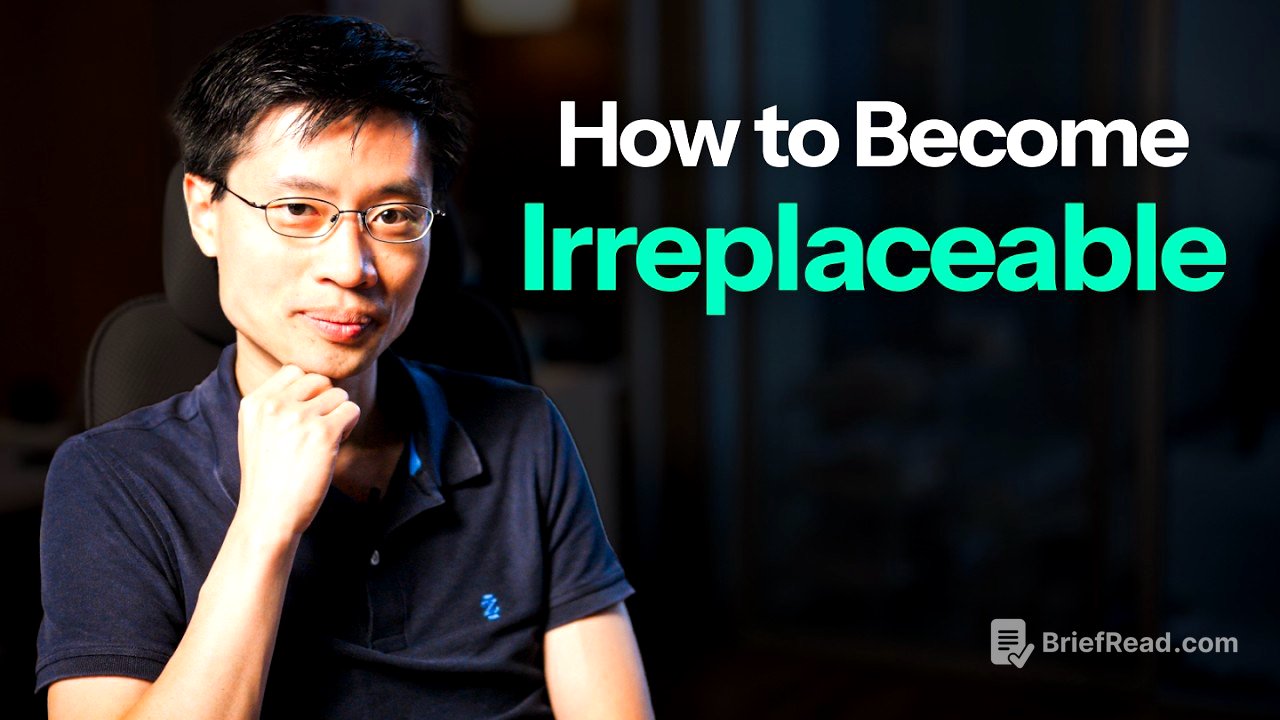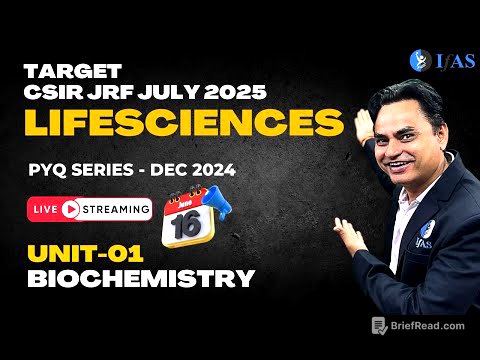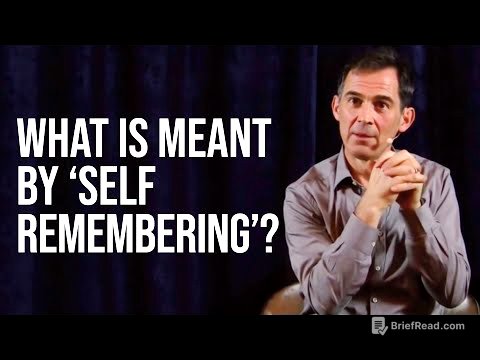TLDR;
Po-Shen Loh discusses the impact of AI on creativity, critical thinking, and education. He emphasizes the importance of developing strong language skills, empathy, and the ability to simulate the world. He also touches on the need for diverse perspectives, staying hopeful, and building social enterprises that solve real problems. The key takeaway is the need to cultivate thoughtfulness and critical thinking in the face of advancing AI technology to ensure a robust and thriving human society.
- AI's impact on creativity and the need to focus on uniquely human traits like empathy.
- The importance of critical thinking, problem-solving, and building strong networks.
- The role of social entrepreneurship in creating a more thoughtful and sustainable world.
Intro [0:00]
Po-Shen Loh initially believed AI couldn't replicate human creativity, but now acknowledges AI's capacity to generate numerous ideas, even solving International Math Olympiad problems. He emphasizes that the unique aspect of human intelligence is caring about human existence. Loh introduces himself as a mathematician and social entrepreneur focused on making the world more thoughtful.
AI’s #1 Target in Schoolwork [1:28]
AI is heavily used by students to cheat on writing assignments, which poses a threat to developing logical thinking and language skills. Strong language skills are crucial for critical thinking and problem-solving. Using AI for writing homework hinders learning, similar to avoiding physical exercise. The power of AI lies in its language capabilities, making it essential for students to develop strong language skills to think critically and solve problems independently.
How a Carnegie Mellon Professor Tests Creativity [3:28]
Po-Shen Loh interviews prospective students by posing unfamiliar math questions to assess their thinking process. He provides hints to see how quickly they can synthesize new ideas into a solution. This tests their creativity and ability to solve novel problems. The expectation isn't to solve the problem immediately, but to observe how they integrate new information and adapt their thinking.
What Matters More Than Creativity [4:25]
The ability to create value and delight in others is becoming increasingly important as AI advances. Humans need to team up to survive, and being motivated by creating value for others is essential for collaboration. Those who don't offer value will be left behind as AI takes over many jobs. Figuring out the real problem to solve requires empathy and understanding others' perspectives.
Simulating the World [5:54]
Simulating the world involves visualizing problems through others' eyes. Loh uses AI to gather information and build logic for understanding various scenarios, such as the country music scene in Nashville. He uses AI to enhance his understanding and scouting abilities, rather than to generate reports. Simulating the world is a superpower for entrepreneurs, enabling them to imagine and strategize effectively.
Why School Makes You Depressed [7:28]
Loh reflects on his early focus on math education and realizes that many capable people are depressed because they focus on outdoing others. He realized that the philosophy of life should not be about outdoing everyone else, as it leads to dissatisfaction. He observed that many clever and capable people were still depressed and didn't know what to do after graduation because they were focused on proving they were better than others.
A Life Goal That Truly Makes You Happy [8:13]
Making others happy is an addictive and fulfilling life goal that correlates with traditional success. Loh advocates for shifting mindsets away from pure competition. He emphasizes that making other people happy is addictive and correlates with traditional success. His background allows him to shift mindsets and promote this philosophy worldwide.
Scaling Critical Thinking [9:13]
Loh teaches his classes by collaboratively problem-solving with students, scaling critical thinking through an online program called "Live." The program pairs high school students with professional comedians and actors to teach them charisma and communication skills, which they then use to coach middle school students in math. This creates a win-win situation where high schoolers improve their communication skills while teaching critical thinking to younger students.
Building Networks for the AI Era [11:16]
The program connects kind high school students with middle school students, fostering a network of thoughtful individuals. High schoolers teach in pairs, enhancing the experience and building trust among them. This network is intended to address future civilization-threatening challenges by fostering collaboration among kind and clever people. Loh focuses on the robustness of human society and its ability to face technological challenges through thoughtfulness.
Taste: AI’s First Theft [12:35]
Loh's work focuses on building autonomous human thinking, emphasizing thoughtfulness. He notes that people are becoming less interested in thinking due to distractions like iPads, which AI could worsen. The fun part of life is having your own contribution, expressing yourself through creativity and personal twists, which would be lost if relying solely on AI. He encourages people to discover the fun in thinking and injecting their own ideas.
Truth: AI’s Second Theft [13:40]
Losing the ability to think and reason makes people easier to deceive. It's important to be critical and understand what's really going on, as everyone has an agenda. Loh is upfront about his agenda to build a more thoughtful world. Critical thinking is essential to discern the truth and avoid being manipulated by others' agendas.
5 Perspectives vs. 7.5 Billion [14:44]
Technology has highlighted the impact of bias, as every tool reflects the creator's bias. The world has diverse viewpoints, and it's unhealthy to have a limited menu of options followed by many people. There are relatively few AI providers compared to the 7.5 billion different viewpoints in the world. The variety of ideas allows for more creativity.
How to Avoid One-Sided Thinking [16:40]
To avoid one-sided thinking, Loh gets news from various sources with different biases, such as CNN and Fox News, and tracks both left-leaning and right-leaning viewpoints on social media. He tries to figure out where they disagree and understand their values. It's important to look at things critically and question the complete story, especially with convincing AI.
How to Stay Hopeful Despite It All [17:43]
Loh remains optimistic because he sees thoughtful people sticking together. He is encouraged by the kind and clever young people he works with, believing they represent a larger group. He sees the power of bringing together people who like others and want to make the world brighter.
Making Money While Solving Real Problems [18:40]
Loh aims to build social entrepreneurs who prioritize making people happy over becoming rich. Social entrepreneurship involves solving problems with real monetary value and creating sustainable businesses. A good social enterprise should make a net profit on every person they help. It's important to tie solving a problem with real monetary value that someone will pay for.
Destroy Your Ideas [21:10]
Loh constantly seeks new ways to do things and then tries to destroy those ideas by identifying what could be wrong with them. Most new ideas are flawed, but the process of generating and destroying ideas helps find the good ones. He combines generating ideas with excitement and destroying them with effort to find valuable solutions.









